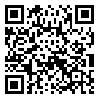Volume 6, Issue 4 (10-2013)
IJMEHM 2013, 6(4): 57-67 |
Back to browse issues page
Download citation:
BibTeX | RIS | EndNote | Medlars | ProCite | Reference Manager | RefWorks
Send citation to:



BibTeX | RIS | EndNote | Medlars | ProCite | Reference Manager | RefWorks
Send citation to:
Seresht M, Izadi A. The attitudes of health care providers toward breaking bad news in neonatal intensive care units and labor wards. IJMEHM 2013; 6 (4) :57-67
URL: http://ijme.tums.ac.ir/article-1-5186-en.html
URL: http://ijme.tums.ac.ir/article-1-5186-en.html
1- Department of Midwifery, Shahrekord University of Medical Sciences, Shahrekord, Iran and PhD Student in Reproduction Health, Shahid Beheshti University of Medical Sciences, Tehran, Iran;
2- University of Imam Hossein, Tehran, Iran
2- University of Imam Hossein, Tehran, Iran
Abstract: (12007 Views)
Breaking bad news emotionally affects both health professionals and patients. Breaking bad news is a sensitive issue for both health care providers and patients. It is generally believed that the patient’s adjustment can be affected by either a positive or a negative experience in this respect. This study aims to determine health care providers’ attitudes toward breaking bad news to parents in NICU and labor wards.This cross-sectional study was conducted in Shahrecord in 2011 with a study sample of 70 health care providers drawn from neonatal intensive care units and labor wards and the department of nursing and midwifery who had had at least one year’s clinical experience. The sampling method was census. Data were collected through a self-administered questionnaire in two sections: demographic information and health care providers’ attitudes toward breaking bad news. Data were analyzed by SPSS software with descriptive and Chi-square and T-student test statistics.
Most participants (63.2%) had a positive attitude toward disclosing bad news to parents. 77.6% of caregivers faced difficulties in delivering bad news to parents, 92.6% of them believed that training workshops in this field are necessary. There was a significant statistical relationship between the attitudes of the health care providers and their education level and work place (P < 0.0001). Health professionals with higher education levels and nursing and midwifery staff had more positive attitudes.There was no significant statistical relationship between the attitudes of the health care providers and their history of difficulties in transferring bad news, workshop trainings, work experience, gender, age and marital status (P > 0.05). The majority of health professionals had a negative attitude toward immediate disclosure of bad news to parents, mothers holding and seeing their deceased babies, dedicating a special room to perinatal loss mothers with similar problems, and preventing other patients and their families from contacting them.Based on the findings of this study, teaching bad news communication skills to personnel of NICU and labor wards should receive prioritization in future continuing medical education programs in order to best prepare the staff for disclosure of bad news to parents.
Type of Study: Research |
Subject:
Medical Ethics
Received: 2013/10/9 | Accepted: 2013/10/12 | Published: 2013/10/12
Received: 2013/10/9 | Accepted: 2013/10/12 | Published: 2013/10/12
Send email to the article author
| Rights and permissions | |
 |
This work is licensed under a Creative Commons Attribution-NonCommercial 4.0 International License. |





